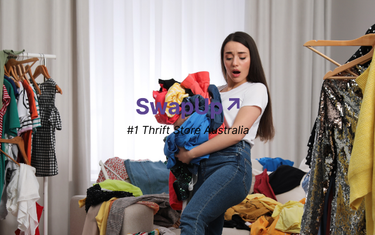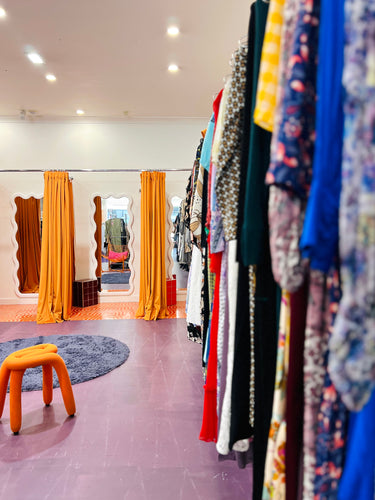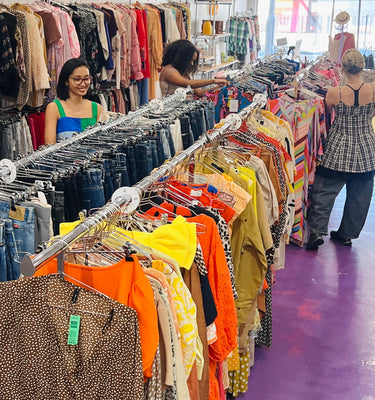In an age where convenience and affordability drive many of our purchasing decisions, the fashion industry has seen the rapid rise of “fast fashion.” While it may offer the latest trends at bargain prices, fast fashion comes with a heavy cost to the environment, garment workers, and even consumers themselves. In this article, we explore what fast fashion really is, why it's problematic, and highlight some major fast fashion brands to avoid if you're trying to shop more ethically.
What is Fast Fashion?
Fast fashion refers to the mass production of cheap, trendy clothing that imitates styles from the runway or pop culture. These clothes are produced rapidly to meet consumer demand and are sold at extremely low prices, encouraging overconsumption. Think of racks constantly filled with “new arrivals” and weekly fashion hauls on social media—this is the world of fast fashion.
What sets fast fashion apart is:
-
Speed: New styles hit stores within days or weeks.
-
Cost: Ultra-low prices keep customers buying.
-
Turnover: Poor quality materials lead to short lifespans, making the clothes essentially disposable.
While it may seem harmless at a glance, this cycle has devastating consequences.
Why Avoid Fast Fashion?
Here are a few reasons why fast fashion should give you pause:
1. Environmental Damage
Fast fashion is one of the largest contributors to global pollution. It accounts for around 10% of global carbon emissions and is responsible for massive water waste. For example, it takes about 2,700 litres of water to make just one cotton t-shirt—enough for a person to drink for 2.5 years.
Synthetic fabrics like polyester shed microplastics into the ocean with every wash, harming marine life and entering our food chain.
2. Exploitation of Workers
Fast fashion brands often outsource their production to developing countries where labour is cheap. Unfortunately, this usually means poor working conditions, child labour, and wages far below a living standard. The 2013 Rana Plaza collapse in Bangladesh, which killed over 1,100 garment workers, was a tragic wake-up call about the human cost of cheap clothing.
3. Overconsumption and Waste
Because the clothes are cheap and often poorly made, consumers tend to buy more and discard them faster. In Australia alone, more than 200,000 tonnes of clothing end up in landfill each year. Most of it is non-biodegradable.
Fast Fashion Brands to Avoid
Here’s a list of well-known brands that are often flagged for unsustainable practices, lack of transparency, or ethical concerns according several sources:
1. SHEIN
Arguably the poster child of ultra-fast fashion, SHEIN releases thousands of new styles every week. Its garments are cheap and trendy, but the company has been criticised for:
-
Lack of supply chain transparency
-
Reports of poor working conditions
-
Excessive waste from mass production
2. ZARA
While Zara pioneered the fast fashion model, its business practices remain problematic:
-
Rapid turnover of new styles encourages overconsumption
-
Despite some green initiatives, production volumes remain unsustainably high
-
Limited detail on labour conditions across the supply chain
3. H&M
H&M markets itself as sustainable with its “Conscious Collection,” but:
-
Critics argue the collection makes up a tiny percentage of overall sales
-
Greenwashing concerns arise due to misleading sustainability claims
-
Fast turnaround and high production continue to fuel waste
4. Forever 21
Known for ultra-trendy, low-cost items, Forever 21 has been criticised for:
-
Poor garment quality
-
Reports of wage theft in supply chains
-
Bankruptcy filings highlighting unsustainable business practices
5. PrettyLittleThing / Boohoo
These UK-based brands target younger consumers and frequently run massive sales, sometimes offering up to 99% off. However:
-
Investigations have revealed garment workers in Leicester paid as little as £3.50/hour
-
Transparency and accountability remain lacking
-
Heavy reliance on synthetic materials and unsustainable practices
How to Shop Better
If you’re looking to move away from fast fashion, consider these alternatives:
-
Buy Second-Hand: Platforms like SwapUp in Australia make it easy to shop stylish, preloved clothes that are affordable and sustainable.
-
Choose Ethical Brands: Look for certifications like Fair Trade, OEKO-TEX, or GOTS that signal ethical production.
-
Invest in Quality: Fewer, higher-quality pieces last longer and reduce waste.
-
Educate Yourself: Tools like Good On You or the Baptist World Aid Ethical Fashion Report help you research brands before you buy.
Final Thoughts
Fast fashion may be easy on your wallet in the short term, but it has long-term consequences that are impossible to ignore. By being more mindful of where and how you shop, you can reduce your environmental footprint and support a more ethical fashion industry.
Remember, every dollar you spend is a vote for the kind of world you want to live in.
Also read: Reduce Consumption: 5 Key Takeaways from The True Cost of Fashion




